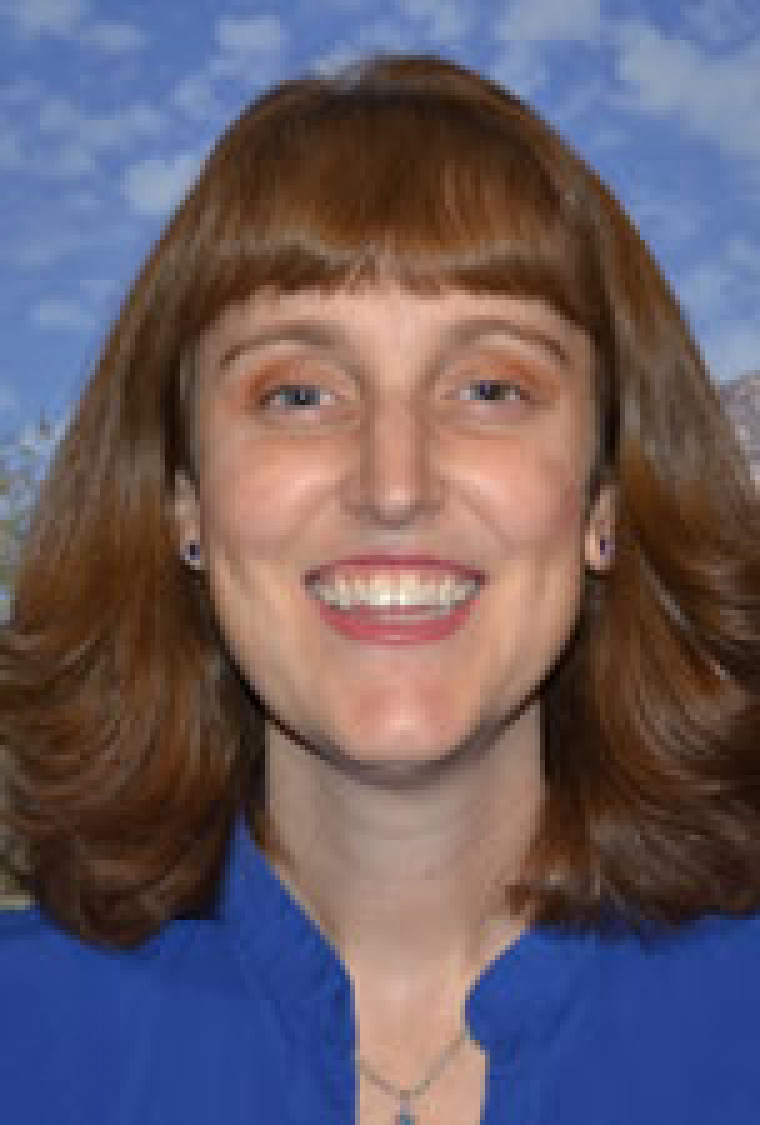Melissa Curran, Ph.D.

McClelland Park Room 235F
650 N Park Ave
Tucson, Arizona 85721-0078
Documents
I am not accepting any new doctoral students for Fall 2025 or for Fall 2026.
My last name sounds like Kur-in.
I use the pronouns of she, her, and hers. (Learn more about pronouns here: https://www.mypronouns.org/).
I am from the suburbs of Chicago, IL. I was an undergraduate student at Ball State University, a Master's student at Illinois State University, and a doctoral student at The University of Texas at Austin. I also was a postdoctoral researcher at the University of Texas at Austin.
I have been a faculty member at the University of Arizona since 2006.
I live in Tucson with my husband. My husband and I dated (mostly long distance) for 7 years and have been married for 23 years. We also love pugs, and have adopted pugs from rescue groups in Texas and Arizona. Beloved pugs include Fish, Sweet Pea, and Mrs. Beasley, with the latter two pugs adopted as seniors (around age 8) from pug rescue groups in Arizona. We recently adopted Paris the pug, who is about 2, and has a lot of fun energy and personality!
When my husband and I have gone on vacation, it is often with my parents, who are a lot of fun and who love beaches! We also love being outside and hiking, including in great Arizona cities like Flagstaff and Show Low!
- Interpersonal and family relations
- Relational sacrifices and relationship quality
- Transition to parenthood
- Family finance
- Experiences of cancer within the family system
- Marital representations and adult attachment
I study couple and family relationships specific to constructs such as finances, relational sacrifices, the transition to parenthood, attachment representations, and cancer.
Much of my research has been guided by attachment and interdependence theory, as well as from other relevant theories and lenses (e.g., family systems, feminism, queer theory, the minority stress model, intersectionality).
Initially, my focus was specific to attachment representations and marital quality during the transition to parenthood for new parents. My focus expanded to include interpersonal topics including relational sacrifices and commitment, as well as the study of cohabitors.
I continue to study relational sacrifices and relationship quality (e.g., commitment, satisfaction), as well as beliefs about relationships and marriage. In much of my research I take a dyadic approach (e.g., Actor-Partner Interdependence Models or APIMs). I am interested in understanding romantic relationships using daily diary data given the statistical advantages of daily diary data (e.g., fixed effects, within-person variability, and lagged effects of relationship quality constructs such as satisfaction and commitment).
I collaborate with colleagues in two other areas: family finance (i.e., in samples of emerging adults, during and after the transition to parenthood, during and after the transition to marriage) and cancer (i.e., experiences of "co-survivors," and health experiences for women diagnosed with breast cancer as predicted from relationship characteristics).
I am an Editorial Board member for Family Relations and Journal of Family Issues and was a previous Editorial Board member for the Journal of Family Psychology and the Journal of Marriage and Family.
I was an Associate Editor for the Journal of Social and Personal Relationships (JSPR; 2015 to 2019) and am now the Editor-in-Chief for JSPR (2020 to 2024).
Most of my projects involve collaborating with current and former doctoral students and it is a joy to collaborate with these talented individuals!
I have several current projects including:
(1) How constructs such as relational sacrifices, attachment styles, and emotion work for individuals and partners predict relationship quality both overall and on a daily diary basis. Collaborations are with current or former doctoral students including Xiaomin Li, Casey Totenhagen, Büşra Kayabol, Val Young, and Ashley Randall as well as colleague Emily Butler (who sadly passed away in January, 2023).
See this link for a systematic review that colleagues and I did on relational sacrifices over the past ~20 years as part of a special issue on greater inclusivity in relationship science: https://onlinelibrary.wiley.com/doi/abs/10.1111/pere.12451 and also this link introducing this special issue: https://journals.sagepub.com/doi/full/10.1177/02654075231154322
(2) The transition to parenthood for couples and families. Collaborations are with current or former doctoral students including Xiaomin Li, Ashley LeBaron-Black, Mahek Shah, Grace Aroz-Moscoso and colleagues Olena Kopystynska and Melissa Barnett.
(3) Family finances (e.g., romantic partners, parents). Collaborations are with Xiaomin Li, Ashley LeBaron-Black, Mahek Shah, Matthew Saxey, Rachel Okamoto, Jing Xiao, Angela Sorgente, Joyce Serido, Soyeon Shim, Sunyoung Ahn, Casey Totenhagen, and Melissa Wilmarth.
(4) Beliefs about, and experiences in, romantic relationships for heterosexual and LGBTQ+ youth and young adults. Collaborations are with Xiaomin Li, Casey Totenhagen, Ashley Randall, April Few-Demo, Aine Humble, Russ Toomey, Amanda Pollitt, and Stephen Russell.
Previous projects:
The transition to parenthood for couples and families as specific to attachment and marital representations. Collaboration with Nancy Hazen and Deborah Jacobvitz. [Nancy was my dissertation advisor and was an amazing and supportive mentor!].
The experience of cancer, in terms of how family members and friends of those who have cancer are considered "co-survivors"; collaboration with Catherine Marshall.
- HDFS 487: Advanced Family Relations (or Interpersonal and Family Theories) (undergraduate) -- taught most often
- HDFS 237: Close Relationships (undergraduate)
- HDFS 492: Directed Research (undergraduate)
- HDFS 491: Preceptorship (undergraduate)
- HDFS 546: Foundations of Family and Interpersonal Theory (graduate) -- taught most often
- HDFS 602/604/607: Topics in Interpersonal and Family Relations (graduate)

